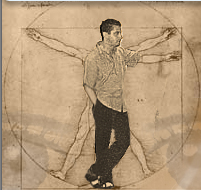| Home > Teaching > Franz Brentano |
|


| Sitemap |
| Print view |
| Login |
Franz Brentano
and the Inception of Analytic Philosophy
Description
The “official history” of analytic philosophy identifies Cambridge circa 1903 as the birthplace of analytic philosophy, with Russell and Moore spearheading a new way of doing philosophy that’s heavily driven by precise articulation of clear theses and rigorous arguments provided in their support. In this seminar, we will trace some of Russell’s and Moore’s ideas, as well as their style of doing philosophy, to the work of Franz Brentano, who was active in Vienna a generation earlier, focusing on philosopher of mind, epistemology, and moral philosophy.
Requirements
- Submit at least 8 of the 9 homeworks, sent to me by Sunday 11:59pm
- Submit a paper between 3k and 7k words, due on April 15 at 11:59pm
Grade breakdown
Homework: 30%
Final essay: 70%
Participation: tie-breaker
Boilerpate
Plagiarism not cool
Disabilities, both physical and psychological, will be accommodated
Week-by-week schedule
Jan. 8. Introduction: Analytic Philosophy and the Brentano School
Module I. Brentano and Stout
Jan. 22. Prolegomena to any future science of consciousness
Readings: Brentano, Psychology from an Empirical Standpoint, Bk. 1 Ch. 1-2; Stout, Analytic Psychology, Introduction §1
Homework 1: What is the thesis of Ch.1 of Bk.1 of Brentano’s Psychology and what is his argument for it?
Jan. 29. The nature of consciousness
Readings: Brentano, Psychology from an Empirical Standpoint, Bk. 2 Ch. 1-2
Homework 2: What is the thesis of Ch.2 of Bk.2 of Brentano’s Psychology and what is his main argument for it?
Feb.5. The classification of conscious phenomena
Readings: Brentano, Psychology from an Empirical Standpoint, Bk. 2 Ch. 5-6; Stout, Analytic Psychology, Bk. 1 Ch.1
Homework 3: What is the thesis of Ch.6 of Bk.2 of Brentano’s Psychology and what is his argument for it?
Module II. Brentano and Russell
Feb. 12. Judgment and truth
Readings: Brentano, Psychology from an Empirical Standpoint, Bk. 2 Ch. 7; Russell, “The Nature of Truth”
Homework 4: What is the thesis of Ch.7 of Bk.2 of Brentano’s Psychology and what is his argument for it?
Feb. 19. Knowledge
Readings: Brentano, Sensory and Noetic Consciousness, pp. 1-5; Brentano, “What Is Truth?”; Russell, “Knowledge by Acquaintance and Knowledge by Description”
Homework 5: What is the thesis of Russell’s paper and what is his argument for it?
Feb. 26. Historiography of philosophy
Readings: Brentano, “The Four Phases of Philosophy and Its Current State”; Russell, “Mysticism and Logic”
Homework 6: In 1-2 pages, compare and contrast Brentano’s and Russell’s conceptions of the great arc of the history of philosophy.
Module III. Brentano and Moore
Mar. 4. Metaethics: the sources of morality
Readings: Brentano, The Origin of Our Knowledge of Right and Wrong, sections 1-32; Moore, “Review of The Origin of Our Knowledge of Right and Wrong”
Homework 7: What Brentano’s analysis of value in Origin and what is his argument for it?
Mar. 18. Guest-Lecture by Hamid Taieb
Mar. 25. Metaethics: the open question argument
Readings: Brentano, The Foundation and Construction of Ethics, Pt. 1 Ch. 6; Moore, Principia Ethica, Preface to the first edition, sections 5-17
Homework 8: What is the Moore’s thesis in the excerpt we read and what is his argument for it?
Apr. 1. Ethics: pluralist consequentialism
Readings: Brentano, The Foundation and Construction of Ethics, Pt. 2 Ch. 2-4; Moore, Principia Ethica, sections 110-123
Homework 9: In 1-2 pages, compare and contrast Brentano’s and Moore’s views on what is good for its own sake.
Conclusion
Apr. 15. Concluding discussion